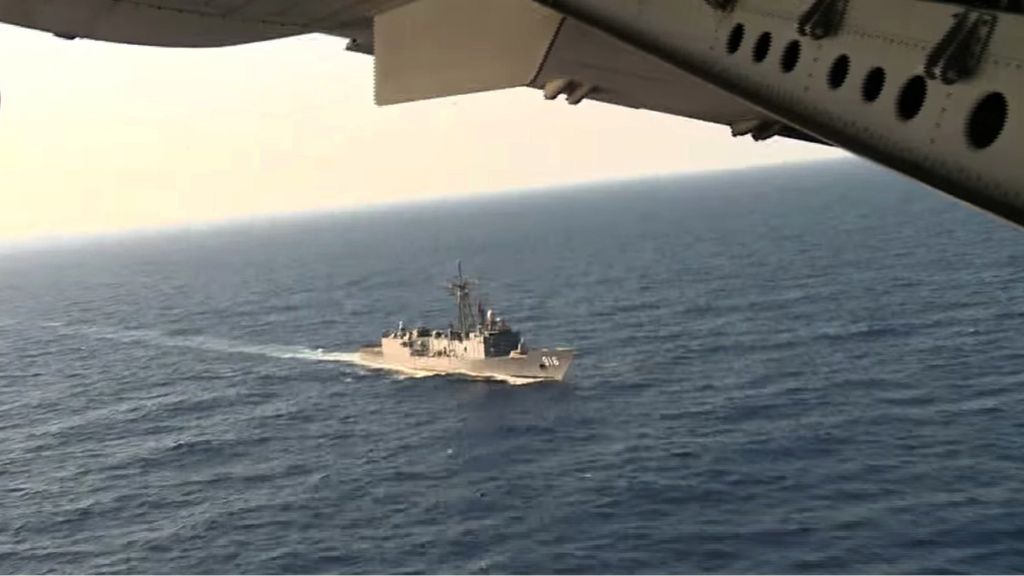EgyptAir: Submarine searches for missing flight data recorders

Egypt has deployed a submarine to search for the flight data recorders of the missing EgyptAir plane.
"We are moving hard to retrieve the two boxes," President Abdul Fattah al-Sisi said in his first public comments on the crash.
The Airbus A320 was en route from Paris to Cairo with 66 people aboard when it vanished from radar early on Thursday.
Mr Sisi said there was "no particular theory we can affirm right now" for what caused flight MS804 to crash.
Investigators say smoke was detected in various parts of the cabin three minutes before it disappeared.
Egypt's civil aviation minister has said the possibility of a terror attack was stronger than technical failure, but Mr Sisi said establishing the cause could take a long time, adding "all scenarios are possible".
The Egyptian military released images on Saturday of life vests, personal items and debris showing the EgyptAir logo which were found during the search in the Mediterranean Sea.
The search has also reportedly found body parts and luggage.
The main body of the plane and the two "black boxes" which record flight data and cockpit transmissions have not yet been located.
The Aviation Herald said that smoke detectors had gone off in the toilet and the aircraft's electronics before the signal was lost.
It said it had received flight data filed through the Aircraft Communications Addressing and Reporting System (ACARS) from three independent channels.
It said the system showed that at 02:26 local time on Thursday (00:26 GMT) smoke was detected in the jet's toilet.
A minute later — at 00:27 GMT — there was an avionics alert indicating smoke in the bay below the cockpit that contains aircraft electronics and computers.
The last ACARS message was at 00:29 GMT, the air industry website said, and the contact with the plane was lost four minutes later at 02:33 local time.
ACARS is used to routinely download flight data to the airline operating the aircraft.
Agency spokesman Sebastien Barthe said the messages "generally mean the start of a fire" but added: "We are drawing no conclusions from this. Everything else is pure conjecture."
Philip Baum, the editor of Aviation Security International Magazine, told the BBC that technical failure could not be ruled out.
"There was smoke reported in the aircraft lavatory, then smoke in the avionics bay, and over a period of three minutes the aircraft's systems shut down, so you know, that's starting to indicate that it probably wasn't a hijack, it probably wasn't a struggle in the cockpit, it's more likely a fire on board."
Greece says radar shows the Airbus A320 making two sharp turns and dropping more than 25,000ft (7,620m) before plunging into the sea.
The search is now focused on finding the plane's flight recorders, in waters between 2,500m-3,000m deep.
In October, an Airbus A321 operated by Russia's Metrojet blew up over Egypt's Sinai Peninsula, killing all 224 people on board.
Sinai Province, a local affiliate of the Islamic State jihadist group, said it had smuggled a bomb on board.
Политика конфиденциальности | Правила пользования сайтом







